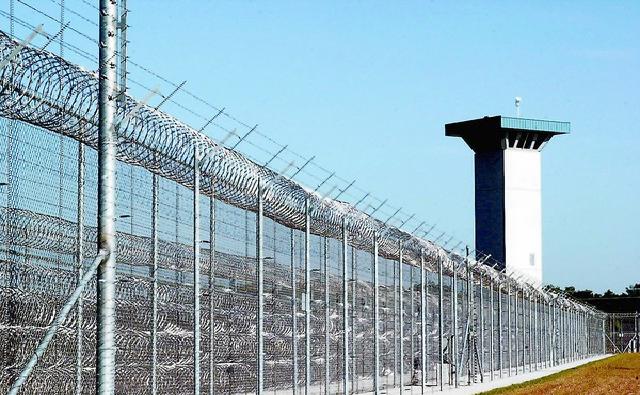
Banking on Immigrant Detention – Wells Fargo’s Ties to the Private Prison Industry
Executive Summary
Private prison operators are profiting from the deepening immigration crisis in the United States. Companies like CCA and GEO Group have seen steady growth due to the countryʼs policy of locking up immigrants in privately-managed detention facilities. These companies have spent millions to shape this policy, win contracts, and ensure that the rules are fixed in their favor – all at the expense of some of the countryʼs most vulnerable people.
These companies would not be positioned to profit from the countryʼs immigration crisis without the help of prominent Wall Street banks. The industry is capital-intensive and requires enormous amounts of financing from banks that sit at the countryʼs financial and economic crossroads. One bank, in particular, has distinguished itself from the competition as an investor in and lender to the industry: Wells Fargo.
This report details the financial ties between Wells Fargo and the top private prison operators in the country: Corrections Corp of America (CCA), GEO Group, and Management and Training Corp (MTC). The information compiled in the report shows that as a lender and investor, Wells Fargo has provided critical support for the private prison industry.
In fact, Wells Fargo is unique among its peers in the financial industry in having strong financial connections to the countryʼs three largest private prison operators:
• CCA. Wells Fargo is a major lender to Corrections Corp of America (CCA), the largest private prison company in the country, acting as the syndication agent and issuing lender on CCAʼs $785 million line of credit.
• GEO. Wells Fargo is a major investor in GEO Group, with $95.5 million invested through its mutual funds, and serves as trustee for $300 million of the companyʼs corporate debt.
• MTC. Wells Fargo is a lender to Management & Training Corp (MTC). MTC is a private company and so it is difficult to find data on its investors and lenders, but Wells Fargo is listed as a lender to MTC in a Utah UCC filing.
The records reviewed for this report show that no other major bank has strong ties to each of the top three private prison companies (CCA and GEO are the top two prison operators in the country, MTC is a somewhat distant third).
The Private Prison Industryʼs Vicious Cycle. As a major investor in and lender to the private prison industry, Wells Fargo is at the center of the industryʼs vicious cycle. This cycle involves profiting from the detention of vulnerable immigrant communities by understaffing the prisons and cutting costs so that basic food and medical needs are not met. The private prisons then use the profits to attract additional capital and investment, and invest in lobbying and other political efforts to win prison contracts and laws that result in higher levels of immigrant detention, which translates into increased profits from increased detention, and so on. Increased detention also drains public dollars from state and federal governments, money that could and should be used to invest in people and create jobs. By lending to and investing in the private prison industry, Wells Fargo plays a crucial role in perpetuating this cycle, and if it were to withdraw from it, this cycle would break down. This report details Wells Fargoʼs role in this cycle as an investor and lender. A future report will also detail how Wells Fargo supports the political and economic agenda of the private prison industry.
Preying on Immigrant Communities. The private prison industryʼs growth model is premised on the exploitation and detention of undocumented immigrants. The report details how private prison company executives recognized the opportunity to profit from immigrant detention in the wake of 9/11 and sought to capitalize on it. Fundamentally, the industry profits from the mismatch between its own power and political influence, and the extreme vulnerability of immigrant communities. As part of the vicious cycle, the more the industry profits, the greater the magnitude of this imbalance of power.
Profiting from Unemployment. The report notes that the private prison industry contributes to unemployment by supporting prison labor and profiting from it. Higher levels of unemployment translate into higher levels of detention, a fact noted by industry executives.
Wells Fargoʼs Denials. As recently as April 2012, Wells Fargo denied significant ties to the private prison industry, perhaps due to the reputational risks of financing such a controversial and predatory industry. But this report clearly demonstrates that despite its stated commitment to “corporate social responsibility,” Wells Fargo has made a business decision to profit from the private prison industry and, in turn, the countryʼs immigration crisis. Now that their central role in the private prison industry has been documented, will they continue to lend their financial support to these practices?
Future Report. This report is the first in a series. A future report will detail other aspects and consequences of Wells Fargoʼs support for the private prison industry, and will raise further questions about the bankʼs role in the private prison industry and the vicious cycle of imprisonment and detention, profit, and political influence it facilitates.
Full report below…
~
4closureFraud.org
~
Banking on Immigrant Detention – Wells Fargo’s Ties to the Private Prison Industry

It’s a conspiracy and a confederacy…they send home legal retired permanent residents who worked for over 40 years and paid taxis and S.S., even sometimes beyond the require amount depending on how long they worked here, for a $4.00 crack so they can stop making the S.s. payments and rob them of their hard earned social security they paid into with their blood, sweat and tears…wake up America…God does not like ugly…
Prisons create job alright, those in prison that get 25 cents an hour for doing work that would be going to an outside person for minimum wage. Not counting the goods made that are sold for prices as if they were made by an outside company. Who is doing the actual profiting here?